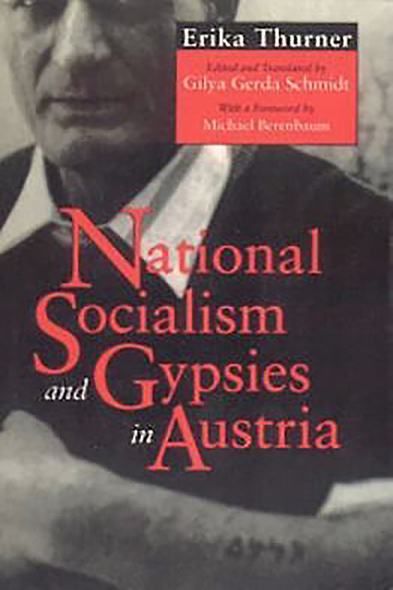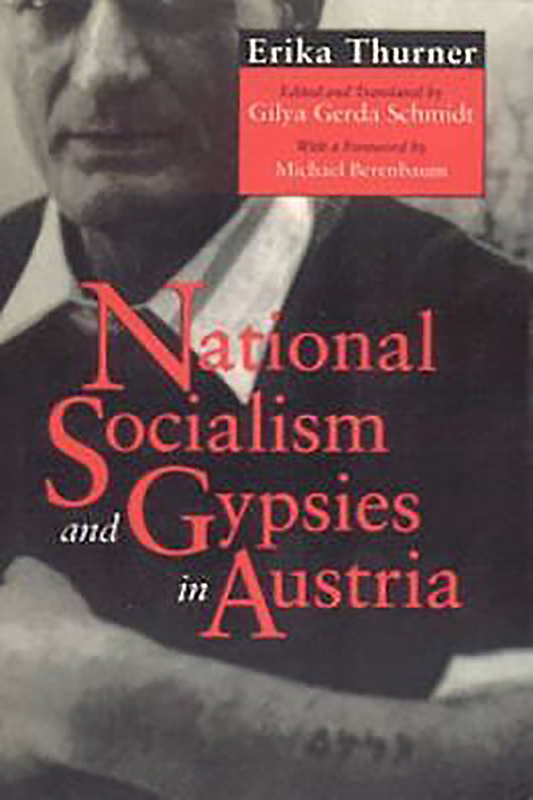Our shopping cart is currently down. To place an order, please contact our distributor, UTP Distribution, directly at utpbooks@utpress.utoronto.ca.
National Socialism and Gypsies in Austria
University of Alabama Press
Nazi policy toward Gypsies during the Third Reich
In this first English translation of Erika Thurner's National Socialism and Gypsies in Austria, Gilya Gerda Schmidt makes available Thurner’s investigation of Camps Salzburg and Lackenbach, the two central areas of Gypsy persecution in Austria. Two factors made Thurner’s research especially difficult: the Roma and Sinti have more an oral tradition than a written one, and scholarship on the plight of the Gypsies is sparse. Through painstaking research, Thurner has been able to piece together fragments from Nazi documents, recollections of victims, accounts of bystanders and other eyewitnesses, and formal records to present her account. The result is a volume that truly enhances our understanding of the Gypsies’ experiences during this period.
The volume also focuses on broader aspects of the Gypsies’ ordeals: the ideological foundations and legal ordinances regarding Gypsies, the discrimination and persecution in Burgenland as a whole, the transports from Austria to Lodz and Chelmo, and the medical experimentation. The book has also been expanded, with a new study of Camp Salzburg, an updated bibliography, and numerous photographs, which were not included in the German edition.
The recent upsurge of anti-Gypsy violence in Austria illustrates both the horror of the treatment of Gypsy tribes and the timeliness of the subject of this volume.
In this first English translation of Erika Thurner's National Socialism and Gypsies in Austria, Gilya Gerda Schmidt makes available Thurner’s investigation of Camps Salzburg and Lackenbach, the two central areas of Gypsy persecution in Austria. Two factors made Thurner’s research especially difficult: the Roma and Sinti have more an oral tradition than a written one, and scholarship on the plight of the Gypsies is sparse. Through painstaking research, Thurner has been able to piece together fragments from Nazi documents, recollections of victims, accounts of bystanders and other eyewitnesses, and formal records to present her account. The result is a volume that truly enhances our understanding of the Gypsies’ experiences during this period.
The volume also focuses on broader aspects of the Gypsies’ ordeals: the ideological foundations and legal ordinances regarding Gypsies, the discrimination and persecution in Burgenland as a whole, the transports from Austria to Lodz and Chelmo, and the medical experimentation. The book has also been expanded, with a new study of Camp Salzburg, an updated bibliography, and numerous photographs, which were not included in the German edition.
The recent upsurge of anti-Gypsy violence in Austria illustrates both the horror of the treatment of Gypsy tribes and the timeliness of the subject of this volume.
This is a valuable addition to the available literature in English on the essential issue of the treatment of Europe's Gypsy population by the Nazi regime. It is full of essential and hitherto unknown information. The translation is accurate and even elegant.’
—Steven T. Katz, Boston University
We have so few books on the Gypsies based on primary archival data, so it is a pleasure to welcome this one to the literature. It is an outstanding contribution to Holocaust research on the non-Jewish victims of the Third Reich.’
—Jack Nusan Porter, University of Massachusetts-Lowell
Erika Thurner is a Professor at the Institute for Political Science at the University of Innsbruck in Austria.
Gilya Gerda Schmidt is Associate Professor of Religious Studies and Chair of the Fern and Manfred Steinfeld Program in Judaic Studies at the University of Tennessee in Knoxville.
Michael Berenbaum is President and CEO of the Survivors of the Shoah Visual History Foundation in Los Angeles.
Gilya Gerda Schmidt is Associate Professor of Religious Studies and Chair of the Fern and Manfred Steinfeld Program in Judaic Studies at the University of Tennessee in Knoxville.
Michael Berenbaum is President and CEO of the Survivors of the Shoah Visual History Foundation in Los Angeles.





